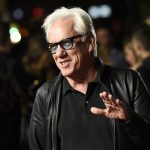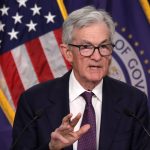Anna Moneymaker/Getty Images
- A Trump appointee, Judge Carl Nichols, was randomly assigned to preside over the prosecution of Steve Bannon.
- Nichols has ruled repeatedly against Trump and his allies since his confirmation to the federal bench in 2019.
- The judge will weigh legal issues and set the pace for the closely-watched and politically-charged prosecution.
At first glance, Steve Bannon appeared to hit the judge-drawing lottery when his criminal prosecution was randomly assigned to a Donald Trump appointee.
But in the two years since Judge Carl Nichols’ confirmation to the federal trial court in Washington, DC, he has ruled repeatedly against Trump and his allies — and often found himself in high-profile cases like the closely-watched prosecution against Bannon that has landed in his lap.
Nichols’ record could be concerning for Bannon, a former top White House advisor and Trump 2016 campaign official who was charged last week with criminal contempt of Congress over his refusal to turn over documents or testify as part of the House investigation into the January 6 attack on the Capitol.
Just a month into his tenure on the federal bench, as House Democrats aggressively investigated Trump and his administration, Nichols drew a politically-charged case that presented — in his words — a “conundrum.” It was July 2019, and then-President Trump had sued preemptively to prevent New York from turning over his financial records to House Democrats.
The case put Nichols in a “very awkward position,” the judge said in court at the time, since House Democrats had not even asked New York for Trump’s state tax returns. At the same time, the House could request the records at any moment and New York could turn them over without notifying Trump, depriving the sitting president of a chance to challenge the move.
In a blow to Trump, Nichols later dismissed the lawsuit, ruling that the federal district court in DC was the wrong venue for a case against New York officials.
From the Supreme Court to Bush’s DOJ
Bannon’s prosecution has returned the longtime corporate lawyer to the spotlight and positioned him to make critical, closely-watched decisions in a case with ramifications extending beyond Bannon to the future of congressional investigations and the ongoing House inquiry into the January 6 attack on the Capitol.
A former Supreme Court clerk for Justice Clarence Thomas, Nichols held a top Justice Department role in the George W. Bush administration and later worked as a corporate lawyer at the firm Wilmer, Cutler, Pickering, Hale and Dorr. As Politico recently reported, Nichols argued as a top Justice Department lawyer that the president’s close advisors have “absolute immunity” and can ignore congressional subpoenas.
“Carl Nichols is a straight-shooter. He was in the government himself and had to make decisions on hard issues. He will understand the equities all around,” said Jamie Gorelick, a partner at Wilmer Hale who served as the second-ranking Justice Department official in the Clinton administration.
Calling him a “very smart and principled lawyer,” Gorelick added that Nichols will “want to move things along quickly but with the defendant’s rights in mind.”
Nichols will likely have to rule ahead of any trial on Bannon’s arguments that executive privilege shields him from having to comply with the special House committee’s subpoenas.
But Bannon had not worked in the White House for years by the time of the January 6 attack on the Capitol, undercutting his claim of privilege, legal experts said. Those experts added that, even if Bannon’s conversations with Trump were protected, he would still need to appear before the House committee and invoke privilege on a question-by-question basis.
“It’s pretty clear that the subpoena was issued, he received it and then he failed to show up. Unless he has some legal privilege argument to make, I don’t think he has a leg to stand on,” said Randall Eliason, a former public corruption prosecutor in Washington who now teaches at the George Washington University School of Law.
“I just don’t think the executive privilege questions are very difficult since Bannon had not been in the White House for three years” by January 6, Eliason added.
AP Photo/John Minchillo
The pace of prosecution
Nichols will also set the pace of a prosecution that House Democrats hope will proceed quickly to deter other Trump officials from snubbing their noses at congressional subpoenas.
A federal grand jury returned an indictment last week charging Bannon with two counts of contempt of Congress over his refusal to testify or turn over documents as part of the House investigation into the Capitol siege. On Thursday, Bannon appeared for the first time before Nichols at a virtual hearing that focused on how quickly the prosecution should proceed, with prosecutors urging a swift pace and defense lawyers seeking to drag out the proceedings.
“In our view, this is a very straightforward case about whether or not the defendant showed up. So we don’t see any reason to delay setting up trial dates,” said Amanda Vaughn, a federal prosecutor in the US attorney’s office in Washington, DC.
Bannon defense lawyer M. Evan Corcoran asserted that the case involves “complex constitutional issues” and argued Nichols should not set a trial date and recommended that the judge instead schedule a hearing for early 2022.
Nichols responded by scheduling a hearing for early December where he said he will address the timing for a trial.
Bannon’s comment and reputation for fiery rhetoric has raised speculation that Nichols might eventually consider a gag order similar to what was imposed on Roger Stone when he was prosecuted in 2019 for obstructing Congress’ investigation into Russia interference in the 2016 election. In response to the indictment, Bannon threatened outside of court last week that he would make his case the ‘misdemeanor from hell” for the Biden administration.
Going against Trump
Trump has demonstrated that he expects loyalty and favorable decisions out of judges he appointed. But, beginning with Trump’s case against New York, Nichols has ruled against the former president and his allies.
More recently, Nichols has presided over civil defamation cases that the voting equipment manufacturer Dominion Inc. has filed against Rudy Giuliani, Sidney Powell and My Pillow CEO Mike Lindell alleging that they spread accusations that the company rigged the 2020 presidential election. Giuliani, Powell and Lindell argued that their claims were protected political speech, in a bid to have Nichols toss the defamation lawsuits.
But Nichols rejected their arguments and, in an August ruling, allowed the defamation cases to proceed into discovery.
“There is no blanket immunity for statements that are ‘political’ in nature,” Nichols wrote. “It is true that courts recognize the value in some level of ‘imaginative expression’ or ‘rhetorical hyperbole’ in our public debate. … But it is simply not the law that provably false statements cannot be actionable if made in the context of an election.”
Powered by WPeMatico






